
The United Nations University (UNU) is the think tank and academic arm of the United Nations. Headquartered in Shibuya, Tokyo, Japan, with diplomatic status as a UN institution, its mission is to help resolve global issues related to human development and welfare through collaborative research and education.
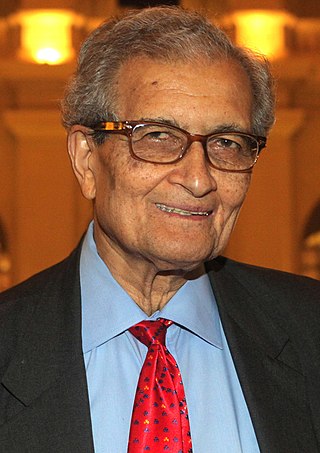
Amartya Kumar Sen is an Indian economist and philosopher. Sen has taught and worked in the United Kingdom and the United States since 1972. In 1998, Sen received the Nobel Memorial Prize in Economic Sciences for his contributions to welfare economics. He has also made major scholarly contributions to social choice theory, economic and social justice, economic theories of famines, decision theory, development economics, public health, and the measures of well-being of countries.

The United Nations Research Institute for Social Development (UNRISD) is "an autonomous research institute within the United Nations that undertakes multidisciplinary research and policy analysis on the social dimensions of contemporary development issues". UNRISD was established in 1963 with the mandate of conducting policy-relevant research on social development that is pertinent to the work of the United Nations Secretariat, regional commissions and specialized agencies, and national institutions.

International inequality refers to inequality between countries, as compared to global inequality, which is inequality between people across countries. International inequality research has primarily been concentrated on the rise of international income inequality, but other aspects include educational and health inequality, as well as differences in medical access. Reducing inequality within and among countries is the 10th goal of the UN Sustainable Development Goals and ensuring that no one is left behind is central to achieving them. Inequality can be measured by metrics such as the Gini coefficient.

The United Nations University - Maastricht Economic and Social Research Institute on Innovation and Technology (UNU-MERIT) is a joint research and training institute of the United Nations University and Maastricht University, with both parent institutions supplying staff. UNU-MERIT is based in Maastricht, in the southeastern part of the Netherlands.
Frances Julia Stewart is professor emeritus of development economics and director of the Centre for Research on Inequality, Human Security and Ethnicity (CRISE), University of Oxford. A pre-eminent development economist, she was named one of fifty outstanding technological leaders for 2003 by Scientific American. She was president of the Human Development and Capability Association from 2008 to 2010.
Sakiko Fukuda-Parr is a development economist, a Professor of International Affairs at the New School for Social Research in New York, and the Vice Chair of the UN Committee for Development Policy. She has gained recognition for her work with the United Nations Development Programme (UNDP), her writing on human rights and development, and for founding the Journal of Human Development and Capabilities. She was the principal author of the UN Human Development Reports (1995-2004).
Haider A. Khan is a professor of economics at the Josef Korbel School of International Studies at the University of Denver. He has been widely recognized for his expertise on social accounting matrix (SAM)-based economic modeling, which he employs to study problems in international economics and development. His areas of research include poverty and inequality, environment, foreign aid, trade and investment, as well as economy-wide modeling. Khan is listed among the top five percent of almost 14,000 professional contributors to IDEAS, and his report on women's rights as human rights is among the top ten in the category of political theory and political behavior on the SSRN website.
Stephen Charles Smith is an economist, author, and educator. He is Chair of the Department of Economics, and Professor of Economics and International Affairs at George Washington University. He is also a Research Fellow of the Institute for the Study of Labor (IZA).
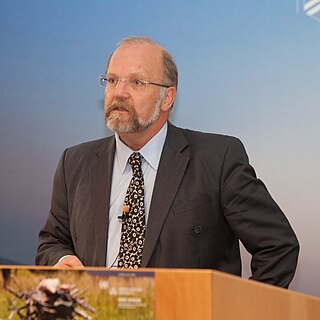
Finn Tarp is a Danish professor of development economics at the University of Copenhagen and former director of UNU-WIDER (2009-2018), Helsinki, Finland.
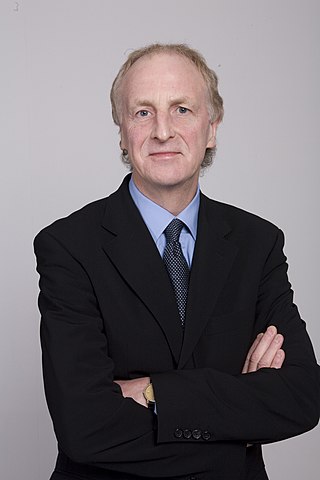
Anthony F. Shorrocks is a British development economist.

The United Nations University Institute on Comparative Regional Integration Studies (UNU-CRIS) is a Research and Training Institute of the United Nations University (UNU). Based in Bruges, Belgium since 2001, UNU-CRIS specializes in the comparative study of regional integration and the provision of global and regional public goods, including environmental stability, poverty reduction, peace, and justice.
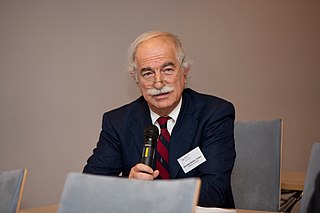
Giovanni Andrea Cornia, is a development economist. He is professor of economics, department of economics and management, at the University of Florence. He has previously been the director of the Regional Institute of Economic Planning of Tuscany, the United Nations University World Institute for Development Economics Research (UNU-WIDER), in Helsinki, and the Economic and Policy Research Program, UNICEF Office of Research-Innocenti, in Florence. He was formerly also chief economist, UNICEF, New York. His main areas of professional interest are income and asset inequality, poverty, growth, child well-being, human development and mortality crises, transition economics, and institutional economics. He is author of over a dozen books and dozens of articles, reports and working papers on practical development economics issues in individual countries, regions and globally.
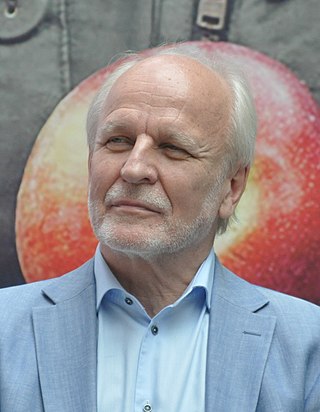
Matti Tapani Pohjola is a Finnish economist. He is a noted economist working on the economics of growth, productivity, technological change, and most notably information and communications technology. He is a professor at the Helsinki School of Economics since 1992 and is the editor of the Finnish Economic Journal. Pohjola is the deputy director of the World Institute for Development Economics Research (WIDER), United Nations University, and since 1992 Professor of Economics, Helsinki School of Economics and Business Administration.

Ernest Aryeetey, is the secretary-general of the African Research Universities Alliance (ARUA) and a former vice-chancellor of the University of Ghana. Prior to his appointment as vice-chancellor, he was a senior fellow and director of the Africa Growth Initiative at the Brookings Institution, Washington, D.C. He was also director of the Institute of Statistical, Social and Economic Research (ISSER) of the University of Ghana, Legon for the period February 2003 to January 2010.
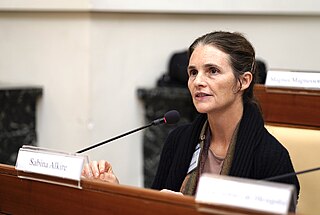
Sabina Alkire is an American academic and Anglican priest, who is the director of the Oxford Poverty and Human Development Initiative (OPHI), an economic research centre within the Oxford Department of International Development at the University of Oxford, England, which was established in 2007. She is a fellow of the Human Development and Capability Association. She has worked with organizations such as the Commission on the Measurement of Economic Performance and Social Progress, the United Nations Human Development Programme Human Development Report Office, the European Commission, and the UK's Department for International Development.
Shatakshee Ramesh Dhongde is an associate professor at the School of Economics, Ivan Allen College of Liberal Arts, Georgia Institute of Technology. She has provided research papers to the several institutions including the International Monetary Fund and the World Institute for Development Economics Research (WIDER). Her work has also appeared in several academic journals including World Development.
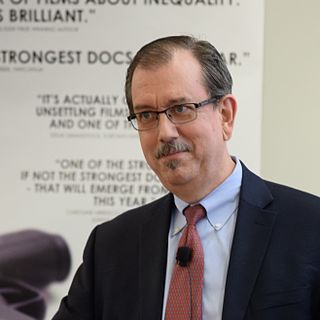
James Eric Foster is Professor of Economics and International Affairs at the George Washington University, in the Elliott School of International Affairs, researching welfare economics and poverty measurement. He is known for developing the Alkire Foster Method, with University of Oxford professor and OPHI Director Sabina Alkire. He is a board member for the World Bank.

Haroon Bhorat is Professor of Economics and Director of the Development Policy Research Unit (DPRU) at the University of Cape Town. His area of research has concentrated on labour economics and poverty/income distribution mainly in his native South Africa, and recently, been expanded to other parts of Africa - in which he is world-renowned authority.

SOUTHMOD is a collection of tax-benefit models for countries in the Global South, maintained and managed by the United Nations University World Institute for Development Economics Research (UNU-WIDER) and partners. It belongs to the class of static microsimulation models and currently has 13 modules for seven countries in Africa, four in Latin America, and one in Southeast Asia (Vietnam). The models are freely available for non-commercial research use.
















